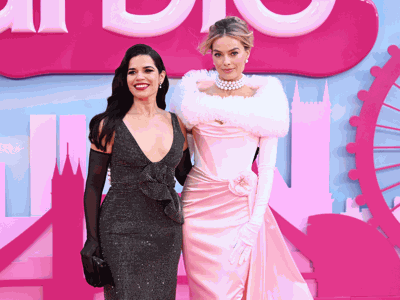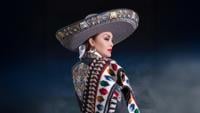As a child, I never had a Barbie, not a real one. My parents couldn’t afford to buy me one.
I did have some dolls, including a knock-off no name Barbie. The imitation had raven black hair.
Deep down, I wanted a real Barbie and once my mom bought my little sister and I a Barbie airplane. But my father made my mom return it because it was too expensive.
I’ve always had a love-hate relationship with Barbie. She was blonde, thin, tall, the Americanized standard of beauty. As a young woman growing up in the early 1970s, Barbie made me feel ugly. I was nothing like her idealized beauty as a Brown, curvy, petite woman. I kinda hated Barbie because I knew I would never look like her. It took me into my 20s to see in myself that Brown is beautiful too.
As an adult, my brother gave me a Barbie as a gag gift. She was named “Teresa.” I couldn’t believe there was a Barbie with my name but she still looked nothing like me.
So the Barbiemania sweeping the country with the release of Greta Gerwig’s new “Barbie” film has left me with mixed emotions. I didn’t want to go see the movie even if it critiqued Barbie. I was skeptical that this was just a capitalistic ploy, a gimmick, a Barbie redo made to please the masses and feminists like Susan Faludi too.
Barbie first came out in 1959. As a white doll, she did not represent little Black and Brown girls. Mattel later tried, badly. “Colored Francine” debuted in 1967. She was meant to be Barbie’s European cousin. I don’t think she counts as a Barbie woman of color. Barbie had other friends with darker complexions Christie (1968), Cara (1975) and Julia (1969).
They didn’t have a Latina Barbie when I was a young girl in the 1970s. According to the Barbie timeline, the first Black Barbie and the first Latina Barbie debuted in 1980, two decades after Mattel introduced the original Barbie.
It wasn’t until 2016 that Barbie introduced new Barbie body types: curvy, petite and tall. So for more than 50 years Barbie enforced the perfect body image leaving many of us scarred for a lifetime knowing we could never look like that.
I read that there are women of color in the movie, notably played by actresses Issa Rae, who is Black, and America Ferrera, whose parents are Honduran. So I decided to go see the movie on half price Tuesday to write a more fair criticism. I really wanted to hate it but I didn’t. I laughed at many of the jokes and how the movie deconstructed Barbie and the patriarchy. (Spoilers ahead.)
Much has been said about Fererra’s speech in the movie. It begins:
“It is literally impossible to be a woman. You are so beautiful, and so smart, and it kills me that you don’t think you’re good enough. Like, we have to always be extraordinary, but somehow we’re always doing it wrong.
You have to be thin, but not too thin. And you can never say you want to be thin. You have to say you want to be healthy, but also you have to be thin. You have to have money, but you can’t ask for money because that’s crass. You have to be a boss, but you can’t be mean. You have to lead, but you can’t squash other people’s ideas. You’re supposed to love being a mother, but don’t talk about your kids all the damn time. You have to be a career woman but also always be looking out for other people. You have to answer for men’s bad behavior, which is insane, but if you point that out, you’re accused of complaining. You’re supposed to stay pretty for men, but not so pretty that you tempt them too much or that you threaten other women because you’re supposed to be a part of the sisterhood…”
It goes on. It’s pretty accurate and helps the Barbies brainwashed by the Kens to come back to themselves, with a massive dose of feminism.
Did we really need a branded Barbie movie to teach us this lesson?
The speech that I most appreciated was given by the tween daughter, Sasha, played by Ariana Greenblatt, who is of Puerto Rican heritage. When faced with Barbie in real life, Sasha and her friends slammed her.
“You’ve been making women feel bad about themselves since you were invented.”
She called Barbie “a fascist.”
It’s kind of unbelievable that Mattel allowed the filmmaker to insult Barbie and at the same time address all the ways that Barbie has hurt women as stereotypical Barbie.
If I could have written a speech to the little girl, who like me felt bad because of Barbie, it would have been something like this: “You don’t need to be like Barbie. You don’t even need dolls. Use your imagination. Play. Write. Live life. Love. You are beautiful just as you are.”
I hope this movie does more than just inspire people to wear pink and host pink parties. I hope it actually ignites a conversation about sexism, racism, the patriarchy, capitalism and more.
Keep reading news like this here.











(0) comments
Welcome to the discussion.
Log In
Keep it Clean. Please avoid obscene, vulgar, lewd, racist or sexually-oriented language.
PLEASE TURN OFF YOUR CAPS LOCK.
Don't Threaten. Threats of harming another person will not be tolerated.
Be Truthful. Don't knowingly lie about anyone or anything.
Be Nice. No racism, sexism or any sort of -ism that is degrading to another person.
Be Proactive. Use the 'Report' link on each comment to let us know of abusive posts.
Share with Us. We'd love to hear eyewitness accounts, the history behind an article.